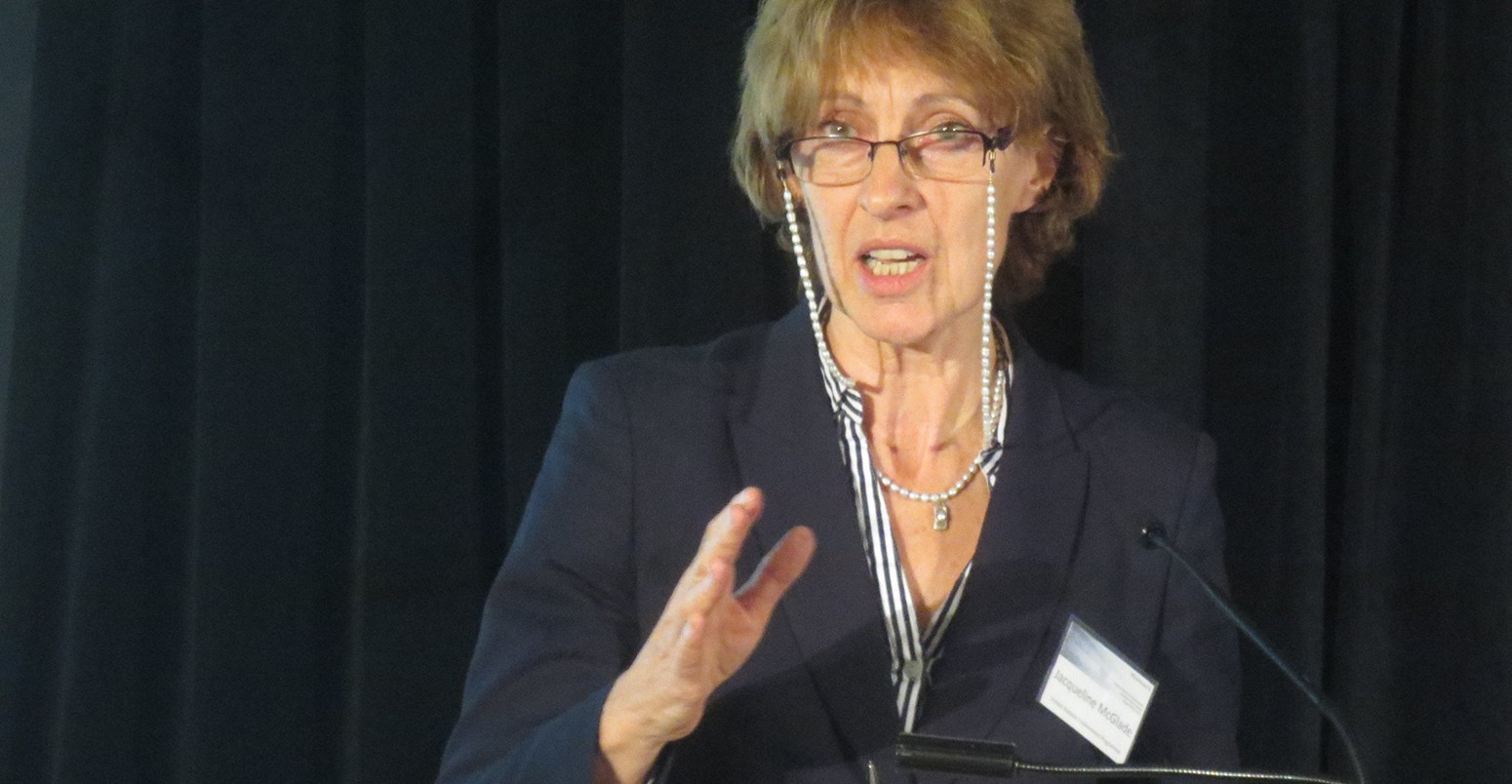Video: UNEP chief scientist on 1.5C climate goal and Donald Trump
Leo Hickman
11.17.16Leo Hickman
17.11.2016 | 1:20pmProf Jacqueline McGlade is the chief scientist of the United Nations Environment Programme (UNEP), the body that coordinates the UN’s environmental activities. Prior to joining UNEP, McGlade served as the executive director of the European Environment Agency from 2003-2013.
Each year, UNEP releases an “emissions gap” report, outlining how near or far the world is from realising its climate targets. Earlier this month saw the release of this year’s edition, which was the first to explicitly measure the so-called “ambition gap” for 1.5C. The report found that countries need to raise their ambition before 2020 or risk closing the door on the 1.5C goal included within the Paris Agreement on climate change.
Carbon Brief caught up with McGlade this week at the COP22 international climate talks in Marrakech to discuss the “emissions gap” report and the realities of meeting the ambitious targets set out in the Paris Agreement. McGlade said that while 1.5C represents an “enormous challenge”, there is a clear path to achieving it:
“In the 2016 UNEP emissions gap report…the conditions that get us [to 1.5C] are that emissions have to peak by 2020 at the latest. And, after that, there have to be significant cuts, anywhere between 15-17 gigatonnes [1 gigatonne = 1 billion tonnes] per year, which is nearly a third again, to get us onto that pathway. That is an enormous challenge. Nevertheless, there is a 50% probability that if we follow all the kinds of conditions that we see in place from the INDCs [intended nationally determined contributions], we could actually see ourselves coming towards that.”
McGlade spoke about the important role that “negative emissions” technologies will need to play in meeting our climate goals:
“In this year’s report, we actually do have to assume negative emissions technologies. We’ve done it in several years. These are biomass, but also other kinds of technologies which have yet to be scaled up, including carbon sequestration. So they do represent a significant part of the models and it’s something that I believe we need to be much more explicit about as we go forward.”
On Donald Trump, the new US president-elect, McGlade is optimistic that even if he follows through on his campaign promises to pull out of the Paris Agreement and revive the US coal industry, there are trends already in motion that cannot be reversed:
“I think it’s worth remembering that the government is only one player now in the delivery. Many, many processes are already out there in play, whether it’s the market mechanisms, the investment in renewable energy, the way in which we’re starting to build our supply chains. These have got a momentum that is far beyond actually what a small administrative shift might be. And so I think it’s worth keeping in mind that [the US] is one country within the whole of the UNFCCC arrangement.”


